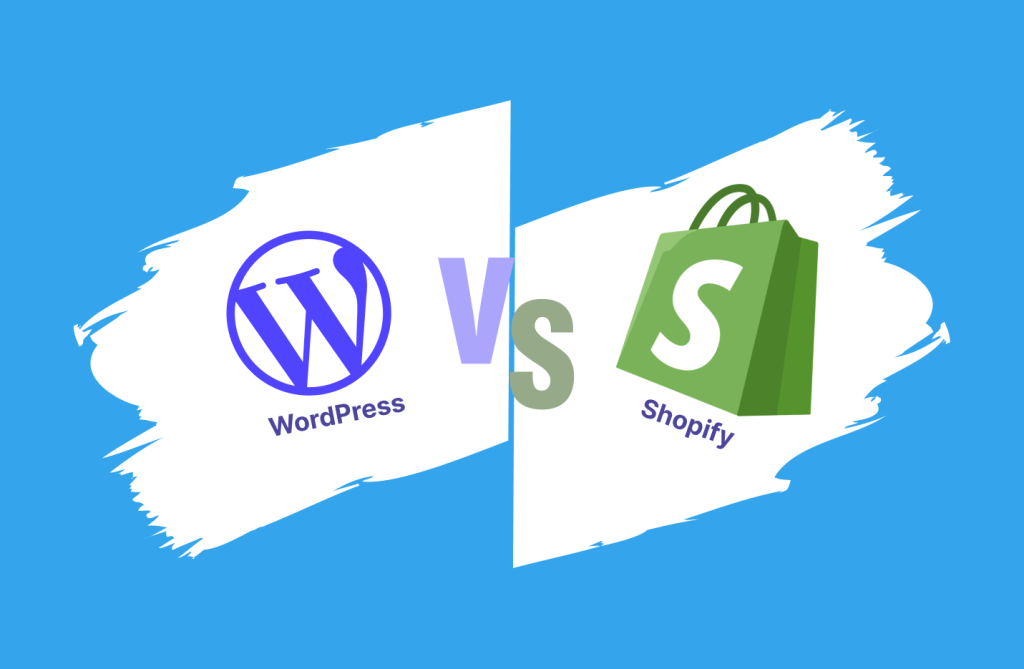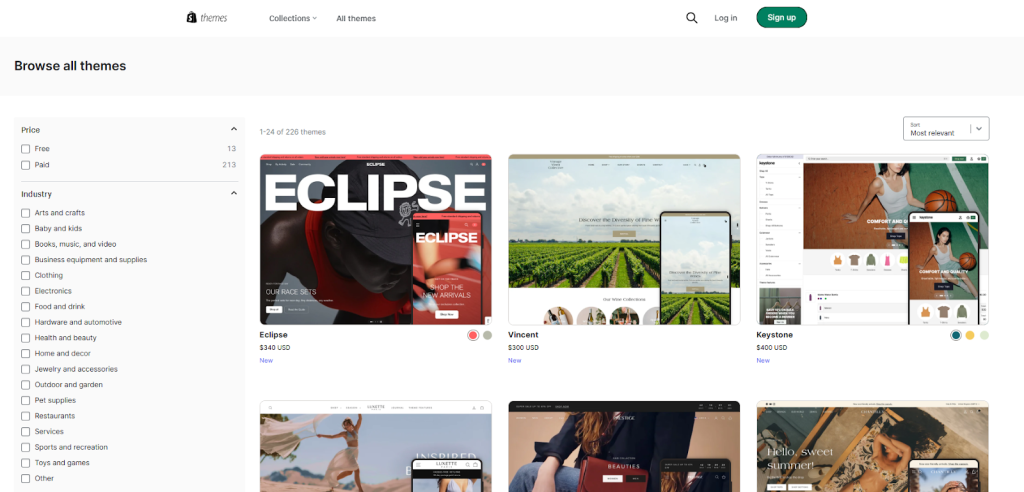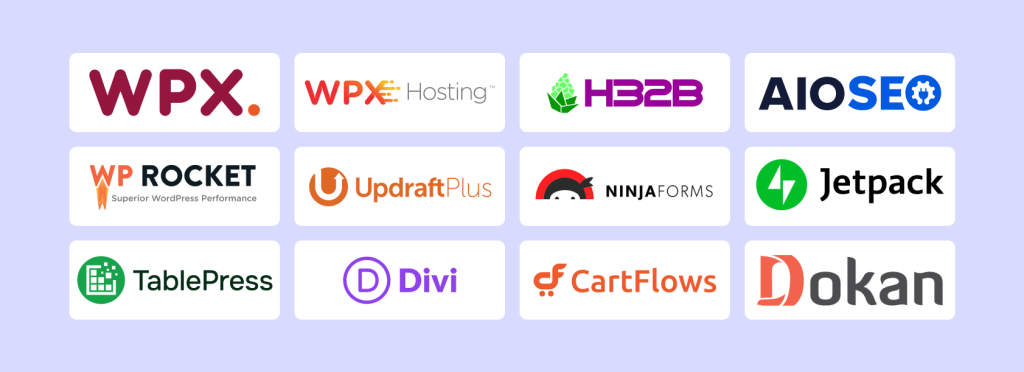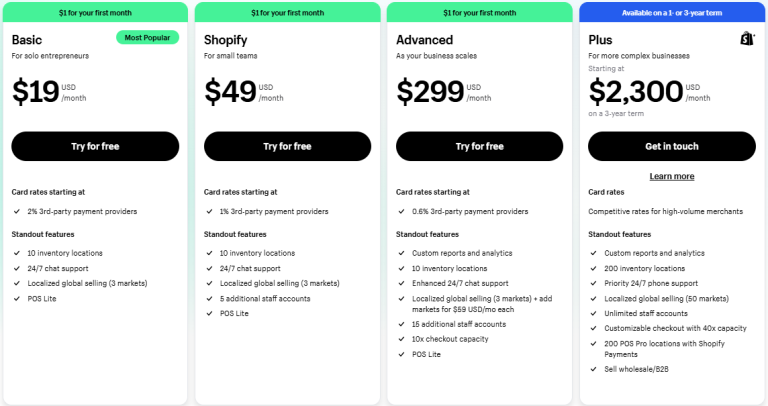When it comes to running an online store, keeping a professional website to showcase your products is essential. You can either build a website from scratch by writing code or, more popularly, create one code-free using a CMS like WordPress or an ecommerce platform like Shopify. This leads us to the question: WordPress vs. Shopify for ecommerce, which platform is better?
In this blog, we have compared WordPress and Shopify across various factors that directly impact ecommerce businesses. We have also highlighted the pros and cons of using each of them.
So, read through to the end and make an informed choice for your ecommerce website.
WordPress vs Shopify for Ecommerce: Comparison Table
| Criteria | WordPress (with EasyCommerce) | Shopify |
| Ease of Use | Requires technical setup and maintenance. | Easy setup, no technical skills needed. |
| Design & Customization | Unlimited customization with plugins. | Limited customization without coding. |
| Features & Functionality | Wide range of plugins for flexibility. | Built-in tools, and extra apps are needed. |
| Pricing & Costs | Free, extra for hosting & plugins. | Subscription + app/theme costs. |
| SEO & Marketing | Excellent SEO plugins and flexibility. | Basic SEO, advanced via apps. |
| Scalability | Scalable, but requires more management. | Scalable with higher-tier plans. |
| Customer Support | Limited support, depends on the host. | 24/7 dedicated support. |
| Security | User-managed, plugin-dependent. | Fully managed, regular updates. |
| Flexibility | Full control over all aspects. | Less flexibility, Shopify ecosystem. |
| Ideal For | Small to medium businesses. | Business of any size. |
WordPress vs Shopify for Ecommerce: An Overview
Before we start comparing WordPress and Shopify for ecommerce, let’s explore a quick overview of each to understand what sets each of them apart.
WordPress
WordPress is one of the most popular Content Management Systems (CMS) on the internet. It is also a leading platform for creating code-free websites in hours, thanks to its versatile plugins.
According to Hostinger, WordPress powers 43% of all websites, which is over 800 million out of nearly 2 billion sites that exist worldwide.
As an open-source platform, WordPress offers a vast library of independently developed themes, templates, and plugins, allowing you to build an ecommerce website exactly as you envision it.
Within the WordPress ecosystem, WooCommerce is a popular plugin for creating ecommerce websites. However, there are more efficient alternatives, which we’ll explore later in this blog.
Shopify
Shopify is a dedicated ecommerce platform designed to make online store creation simple and hassle-free. It is fully hosted, meaning you don’t need to worry about managing hosting, security, or technical updates.
Shopify is beginner-friendly, and intuitive, and offers easy store setup with pre-designed themes. It’s also equipped with a drag-and-drop editor and built-in ecommerce tools like payment gateways and inventory tracking.
Overall, an ideal choice for small to medium-sized businesses or anyone seeking a straightforward way to launch and run an online store.
WordPress vs Shopify for Ecommerce: Which One is Better?
Choosing between WordPress and Shopify depends on factors like ease of use, customization, pricing, etc. Here, we’ll put them against each other to help you pick the best option for your store.

1. Ease of Use
WordPress
WordPress, when paired with WooCommerce, offers exceptional flexibility and control. Also, installing WordPress is simple with one-click options that come with most hosting providers.
However, setting up an ecommerce site involves more than just installing WordPress. You will need to choose a theme, activate and optimize plugins like EasyCommerce or SureCart, and integrate essential solutions for payments, shipping, and other functionalities.
Shopify
In comparison to WordPress, Shopify provides a more beginner-friendly approach. As a fully hosted solution, it handles hosting, installation, and security itself.
Plus, anytime you feel stuck with something technical, their premium dedicated customer support team will be there to guide you through every step of building an online store.
Winner: Shopify
Shopify is the winner, simply in terms of ease of use. It’s streamlined and easier to get started with and it’s ideal for those who want a quick and hassle-free launch.
On the other hand, WordPress is better suited for users willing to invest more time in exchange for more control and flexibility.
2. Design and Customization
WordPress
The best part of using WordPress for ecommerce is its unlimited design and customization possibilities. WordPress offers much more customization flexibility with thousands of free and premium themes that are unmatched by Shopify. Especially, its drag-and-drop editors like Elementor and CoDesigner make design customization effortless.
In case you choose EasyCommerce, you can even create customized product page layouts, and save them for future use. All that without touching the core functionality.
Shopify
Shopify provides a selection of pre-designed themes and 216 of which just 13 are freely usable. While Shopify Themes are pretty aesthetic and responsive, customization is limited unless you’re comfortable working with Shopify’s coding language.

That’s why advanced customization often requires hiring a developer, which isn’t only hard to find but also adds cost to the ever-growing expenditure list.
Winner: WordPress
WordPress is the clear winner for design and customization. It’s because WordPress offers greater flexibility and variety while keeping costs in control.
3. Features and Functionality
WordPress
WordPress, without its plugins is a very simple platform. This is even more applicable for ecommerce sites as they require specialized features such as product staging, checkout process, online payment, coupons, etc.
WordPress has a vast repository that is full of plugins for almost any feature and functionality you can ask for.

When paired with EasyCommerce, you gain access to a wide range of features, including product-order management, payment gateways, and CRM integrations.
Additionally, EasyCommerce offers built-in capabilities that would typically require extra plugins on other platforms.
Shopify
Shopify offers powerful built-in ecommerce tools, including inventory management, abandoned cart recovery, gift cards, Shopify email, customer segmentation, multi-channel selling, etc. Default feature availability can vary depending on your plan type.
Shopify has a dedicated online store where you can find everything you need to set up a fully-fledged ecommerce store. However, for advanced features, users may still need to purchase third-party apps, which can add to costs.
Winner: WordPress
WordPress wins again in WordPress vs Shopify for ecommerce for its massive plugin ecosystem (60,000+). WordPress plugins are designed for specific tasks, offering more flexibility.
While Shopify has great features too, WordPress remains the choice of millions for its versatility.
4. Pricing and Costs
WordPress
WordPress itself is free because it is an open-source platform. It will remain so as long as you keep choosing their free themes, and plugins for your website. But some costs are unavoidable such as renting hosting server space and purchasing the domain.
Here’s a summarized cost breakdown for a WordPress WooCommerce website –
- Domain Name: $10 – $20/year
- Web Hosting: $3 – $500+/month (based on type)
- Theme: Free – $100 (one-time for premium themes)
- Plugins: Free – $300+/year (for premium plugins)
- Design & Development: $0 – $2000+ (DIY or custom)
- Ongoing Maintenance: $50 – $500+/month
These costs are variable as scaling the business may require paying for themes, plugins, etc.
On the contrary, EasyCommerce has some cost-saving advantages for users. It’s completely free and includes many features by default, unlike WooCommerce, where you’d need additional plugins.
This not only saves you money but also improves speed and synchronization by reducing the need for extra plugins.
Shopify
Shopify is a premium platform with clear subscription tiers. Starting from Basic ($19/month) to Plus which can cost up to $2,300 a month.
On top of that, additional costs like transaction fees (Stripe), premium apps, and paid themes can make it even more expensive which can be damaging for growing stores.

Here’s a summarized cost breakdown for a Shopify ecommerce website –
- Domain Name: $10 – $20/year
- Shopify Plan: $19 – $2300+/month (based on plan)
- Theme: Free – $180 (one-time for premium themes)
- Apps/Plugins: Free – $300+/year (for premium apps)
- Design & Development: $0 – $10,000+ (Depends on the complexity)
Unlike WordPress ecommerce websites, developing and maintaining a Shopify store has a higher learning curve. It can lead you to higher costs, as you might need to hire a developer for that.
Winner: WordPress
Again, WordPress is the clear winner because its being more cost-effective in the long run. With EasyCommerce, the cost is even lower as it reduces the need for multiple add-ons and has no maintenance whatsoever.
5. SEO and Marketing

WordPress
In ecommerce, SEO and marketing are crucial for success. Without them, an online store is far from reaching success. Although WordPress started as a blogging platform, today it provides a wide range of SEO and marketing plugins. These tools make it easier for users to manage essential ecommerce SEO-marketing activities effectively.
From another perspective, factors like fast responsiveness and excellent UI/UX performance also positively impact search engine rankings. EasyCommerce proudly excels in all these areas.
Additionally, you can integrate popular SEO and marketing plugins from the WordPress repository, such as Yoast SEO, Google Site Kit, MailPoet, etc.
Shopify
Shopify too offers some solid SEO features, such as clean URLs and mobile responsiveness, etc. Its built-in SEO features include fast loading speed, mobile-friendly designs, and rich snippets.
Shopify has default marketing essentials such as Shopify Email for campaigns, abandoned cart recovery, and multi-channel selling. Most importantly detailed analytics for tracking performance.
However, there aren’t any SEO tools available by default. Thus, customization is limited, and advanced SEO often relies on third-party apps, adding to expenses.
Winner: Both
WordPress is ideal for flexibility and organic growth, while Shopify offers simplicity with built-in features. Hence, we consider both of them as the winner. However, WordPress offers greater potential for future tool integration.
6. Scalability

WordPress
WordPress offers high scalability, supporting everything from small stores to enterprise-level operations. However, it’s significantly more popular among small to medium businesses.
It’s because, the more your business scales, the more it requires active management, plugin upgradation, increasing hosting space, etc. for optimal performance.
Still, there are numerous examples of WordPress sites that house businesses worth 20,000 products and run smoothly.
Shopify
Shopify is also scalable but comes at a much higher cost. It offers 4 pricing plans—Basic, Shopify for Small Teams, Advanced, and Plus with each having increased capacity and access to advanced features.
Especially the Advanced and Enterprise packages are dedicated to larger stores that require higher-tier plans and premium apps to support growing operations.
Winner: WordPress
While Shopify may have an edge in scaling businesses, WordPress is still a strong contender, offering competitive features and flexibility.
It offers cost-effective growth opportunities, which is crucial for small to medium-sized businesses.
Pros and Cons of WordPress vs Shopify for Ecommerce
WordPress
Pros of Using WordPress
- Unlimited customization with themes and plugins.
- Excellent SEO capabilities.
- Cost-effective with better control over expenses.
- Flexible enough to handle any store size or niche. (Preferably Small to Medium)
- Enhanced user experience with tools like EasyCommerce.
Cons of Using WordPress
- Requires technical knowledge for setup and maintenance.
- Dependence on third-party plugins for some functionalities.
- Hosting and security are user-managed.
Shopify
Pros of Using Shopify
- User-friendly and beginner-focused interface.
- Fully hosted solution with minimal maintenance.
- Quick setup with built-in eCommerce tools.
- Reliable customer support and robust security.
- Ideal for small businesses with simple needs.
Cons of Using Shopify
- Limited customization options.
- Higher ongoing costs due to platform subscription, transaction fees, and premium apps.
- Less control over site data and functionality.
Conclusion
Choosing between WordPress and Shopify for ecommerce can be challenging. WordPress stands out for its affordability and extensive customization options, while Shopify offers simplicity and ease of use but at a higher cost. Ultimately, the choice depends on your business needs, but for most cases, we recommend WordPress.
WordPress is ideal for small to medium-sized businesses looking for a cost-effective platform to scale. Its vast plugin library lets you add any feature while maintaining full control over your website. That concludes our comparison of WordPress vs. Shopify for ecommerce.
What are your thoughts on which platform fits your needs best?
Frequently Asked Questions (FAQs)
Which is better for drop shipping, WordPress or Shopify?
Shopify is better for dropshipping due to its built-in tools, dedicated apps like Oberlo, and ease of setup. However, WordPress offers more customization, lower costs, and flexibility with plugins like EasyCommerce and AliDropship.
Choose Shopify for simplicity or WordPress for greater control and scalability based on your business needs.
Is WordPress hosting good for ecommerce?
Yes, WordPress hosting is excellent for ecommerce if paired with a reliable provider. When paired with EasyCommerce, it ensures optimal performance, scalability, and security for your store. With the right setup, it’s a cost-effective and powerful solution for any ecommerce business.
Which ecommerce platform is best for beginners?
WordPress with the EasyCommerce plugin is ideal for beginners. It offers a cost-effective, user-friendly solution with extensive customization options.
EasyCommerce simplifies setup and provides built-in features, eliminating the need for multiple plugins. This combination delivers flexibility and control, making it perfect for starting an ecommerce store effortlessly.

